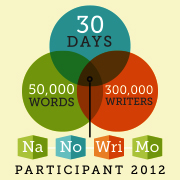Sometimes, there’s this Book. You know the one – it’s a book that you remember reading all your life. The one that you finish in record time, reading in great gulps, and then exclaim over, and pass along to someone else – all the while madly scrambling to see if the author has written anything else.
I was in high school, and I was on a Gothic-reading binge. Gothics had mystery, romance and a touch of suspense to them, all of which appealed to me. More importantly, they were readily available on the spinners and magazine racks in the stores of my hometown. And better yet, my mother would read them too, which meant that I could usually count on her to fund some of my reading habit.
One day, I found a book called Ammie, Come Home, by Barbara Michaels. It looked interesting, so I picked it up.
It was one of those Books.
In addition to the mystery and romance – which I had expected – Michaels had woven a deep stream of the paranormal into the book – which I had not expected. I loved it. In those days when urban fantasy did not exist as an official genre, Michaels was writing it.
Witch was the next of her books that I found. It confirmed that Michaels was an author I wanted more of, and more and more.
And the hunt was on. A book here, a book there – I found just enough to keep me tantalized and searching for still more.
It wasn’t until I got to college, with many bookstores available and larger libraries, that I found most of the rest of her books. I finally ran into that wall of having read everything I could find by a particular author, and was stuck waiting for each year’s new offering. A year is a long time to wait when you want that next book.
And then a librarian asked me if I knew that Barbara Michaels also wrote as Elizabeth Peters.
An orgy of reading followed.
Her Elizabeth Peters books had more archaeology and less of the supernatural, but they still sucked me right in and told a story that kept me there until I had consumed the entire book. Then they spit me out with a dreadful book hangover (that mix of rapturous oh-I-loved-it and miserable I-can’t-believe-it’s-done).
At least this time, when I hit the read-it-all wall, I could look forward to two new books a year.
Barbara Michaels/Elizabeth Peters/Barbara Mertz (her real name) died this past week, at the age of 85. There will be no more new books to wait for.
I will miss opening up the new adventures of an old friend from past pages. I will miss meeting a new character ready to dazzle with me with humor, intelligence and just enough quirks to make them seem like a real person I would like to know better. I will miss the plot twists Michaels/Peters tossed at her readers, and the romance – not heavy-handed sex or erotica but simple, sweet romance – that was in many of her books. Her regular use of older heroines appealed to me, particularly as I reached maturity myself. It was nice to see that you didn’t have to be twenty-something to have adventures!
Michaels’/Peters’ strong female characters – who could rescue themselves, thankyouverymuch – and her touch of the Unknown – these things drew me in from the first book, kept me coming back for more for four decades, and have strongly influenced my own writing.
I could go on and on about my favorite Michaels/Peters characters and books, but if I got started, it would be hard to stop. Suffice it to say that she created many, many favorites of mine over the years.
So here is a huge thank you to author who not only entertained me for many years, but helped shape the path of the writer I have become.
Rest in peace, Barbara. You were a wonderful story teller – the highest accolade I can give an author – and an incredible influence on me.

